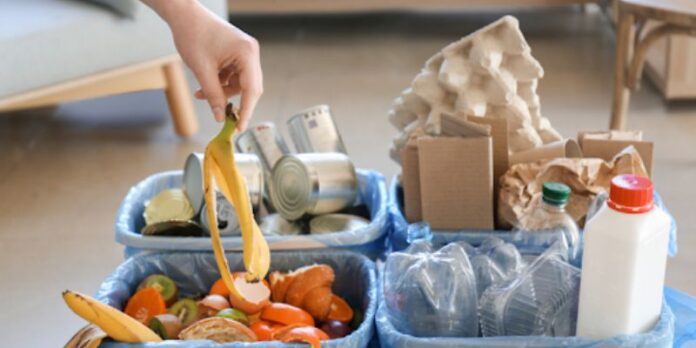Recycling is becoming increasingly popular. This lessens the need for landfills and other expensive disposal methods. Additionally, recycling like the service offered at pink skips Manchester lessens the need for raw material extraction (mine, quarrying, and logging), refinement, and processing—all of which contribute significantly to the contamination of the environment. This contributes to energy conservation, lowering the release of greenhouse gases, and combating climate change.
Saves Wildlife and Ecosystems
Recycling reduces the amount of disturbance to the environment. We can protect animals from danger by reducing the amount of forests and trees that are cut down. By lessening disturbance and harm to the environment, we contribute to preserving ecosystems and wildlife.
Preserves Our Natural Resources
Recycling contributes to the conservation of some natural assets that are scarce in the globe. Recycling paper helps protect trees and forests. Recycling plastic generates an abundance of solid trash and it may take millennia for it to decompose. Furthermore, the majority of plastic is made from hydrocarbons from fossil fuels. Recycling glass lowers our desire for some raw materials, such as sand, whilst recycling metals lessens the requirement to extract new metal ore.
Conserves Energy
Energy consumption is lower when goods are made from recycled materials than new raw materials. Items produced using reused parts require considerably less energy than those produced using crude assets. One glass bottle, for example, can be reused to save sufficient energy to run a 100-watt light for four hours.
Lowers the Need for Raw Materials
More of the world’s poorest & most vulnerable people—such as those who live near forests or river systems—are being evicted from their homes or subjected to various forms of exploitation as a result of a growing need for new products. Rivers may be dammed or contaminated by industry waste, and forest populations may be forced to relocate due to the pursuit of cheap lumber. Recycling current goods is significantly preferable to harming another person’s community or wasting resources on the hunt for new starting points.
Reduces Carbon Emissions That Cause Climate Change
Recycling reduces carbon emissions since it requires less energy to source and prepare new raw materials. Also, it forestalls trash that could let methane out of winding up in landfills. To forestall disastrous environmental change, outflows of carbon dioxide close by other ozone harming substances should be decreased.
Less Expensive Than the Collection and Disposal of Garbage
Experts pointed out that “disposing of recycled waste is six times lower than ordinary refuse.” Therefore, the more you recycle as well as the less you throw in the trash, the more money that you conserve, which should benefit the community’s services, businesses, and homes. Recycling ecologically sound food waste is also a terrific idea because it frequently produces a lot of valuable compost which is suitable for helping grow additional crops and food.
Addresses Youth Unemployment
More than 500,000 youths between the ages of 16 and 24 are unemployed. The government has to invest in more green jobs to future-proof livelihoods rather than supporting dwindling, polluting businesses.
Preserves Natural Resources
Resources from nature are limited in the globe, and some are extremely scarce.
On a fundamental level:
- Forests and trees are preserved when wood and paper are recycled. Yes, you may plant new trees, but whenever an ancient woodland or virgin rainforest is gone, it cannot be replaced.
- Since plastic is typically generated from hydrocarbons from fossil fuels, recycling plastic reduces the amount of new plastic produced, so this is unquestionably a positive thing.
- There are fewer requirements for hazardous, costly, and destructive mining & extraction of new metal ores when metals are recycled.
- Glass recycling lessens the desire for new raw resources like sand. This may seem unbelievable, but the world’s supply of some types of sand is running limited.
Final Words
In actuality, we are all required to develop the practice of initially utilising fewer goods. To reduce waste, the items we regularly utilise should be reused for as long as possible prior to being discarded. The effort to respond to the global garbage control problem, which has had many nations in the Global South unjustly take on the burden of taking care of the trash of nations in the Global North, would be greatly aided by this. Governments are unable to ignore the issue of waste management.





